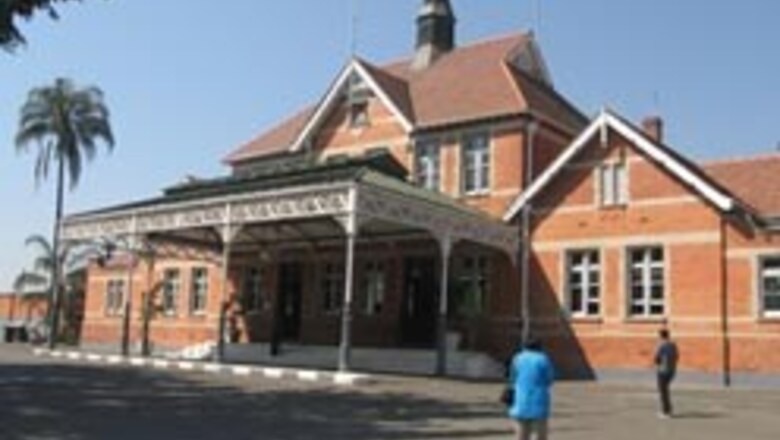
views
Pietermaritzburg (South Africa): The railway station where Mahatma Gandhi was thrown off a train, an incident that changed the destiny of two big countries, is today reduced to an edifice that very few people care to visit.
This town on the outskirts of the port city of Durban was where India's 'father of the nation' suffered that ignominy for being a non-white, which gave his life an objective and later made words like 'Ahimsa' and 'Satyagrah' familiar around the world.
Gandhi fought against apartheid during his 21 years in South Africa before moving back to India, where he led the struggle for freedom.
But the railway station where the incident occurred wears a forlorn look with hardly any visitors despite a part of it being made into some sort of a memorial.
A solitary passenger train plying to and fro between Johannesburg and Durban stops by at this station. There is neither any hustle and bustle at the platforms nor are people vying to have a glimpse of the place.
"People coming from the sub-continent are nowadays more interested in going for safaris rather than seeing places associated with Gandhiji," says Urmilla Singh, who conducts guided tours from Durban.
"The Indian community here says it considers it important but I don't think it's a place where even the locals make it a point to come or bring their children to," says Urmilla, even as a goods train chugs along to remind us that we are on a railway station.
It was on July 7, 1893, that Gandhiji had boarded a train during his stint as a lawyer in South Africa. He had bought a first-class ticket for the Natal-Johannesburg route but had not been allotted a bed ticket.
When he asked for the same, he was told to leave that part of the train, as he was a non-White. On refusing to do so, Gandhiji was punched, kicked and thrown off, a rude introduction to apartheid.
"It was an experienced that changed the course of life," he was to say later in 1939.
Jane Tshapalala is one of only half-a-dozen commuters at the railways station when we make a visit here, and probably the only one who has heard of Mahatma Gandhi.
"Yes, I read about him in grade V. He was a great man who fought for our rights if I recollect correctly. But I don't think people know too much about him," says Jane, who uses the train to carry umbrellas, which she deals in.
Phindi Ngqulunga, a security officer at the complex says there are days when hordes come in, but they are few and far between.
"We have the train coming here six days a week but that solitary one from Durban to Jo'burg too is used by just a few people because rail is not a commonly used mode of transport here," explains Phindi.
"We do have tourists on Fridays and on weekends, but not too many. It is only once in a couple of months that we have a big group of tourists from India and it is only then that you can really see people around," she adds.
There are some tourists from India though who are not bothered about the place being almost desolate.
"As soon as our tour materialised, the first thing that struck us was that we had to come here," says Anjali Oak, a teacher from Mumbai. "I teach my students about our Father of the Nation and I was looking forward to see this place."
Says her husband Dilip Oak, who works as a deputy general manager with Indian Oil Corporation, "We came here to watch the Twenty20 cricket. But visiting this place was any day more important than going for a safari."




















Comments
0 comment